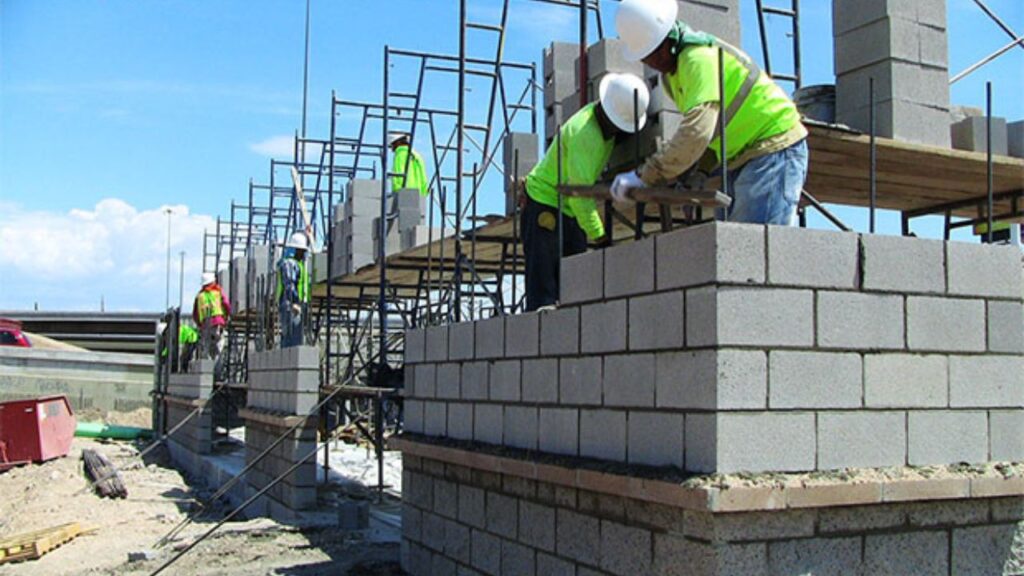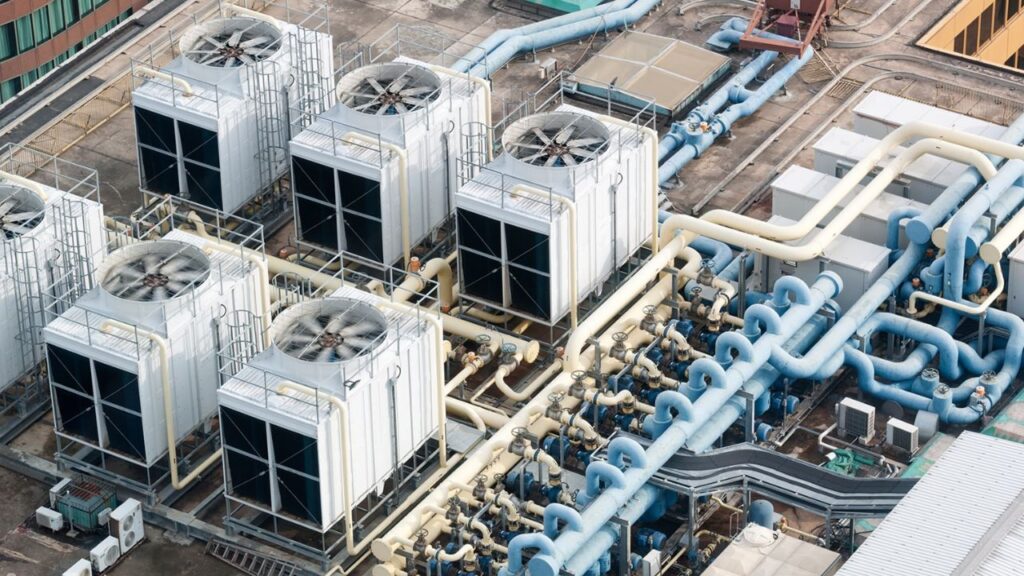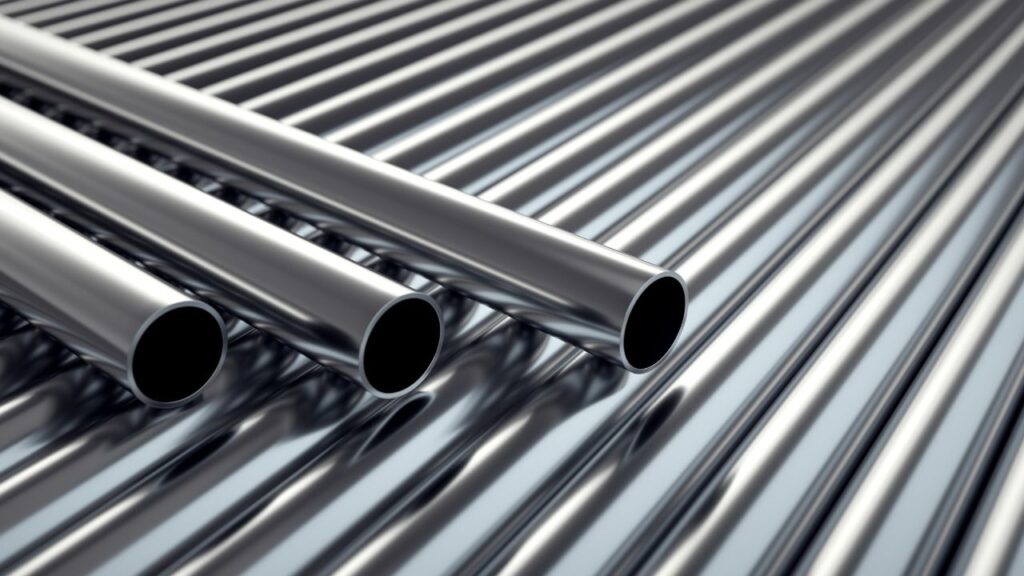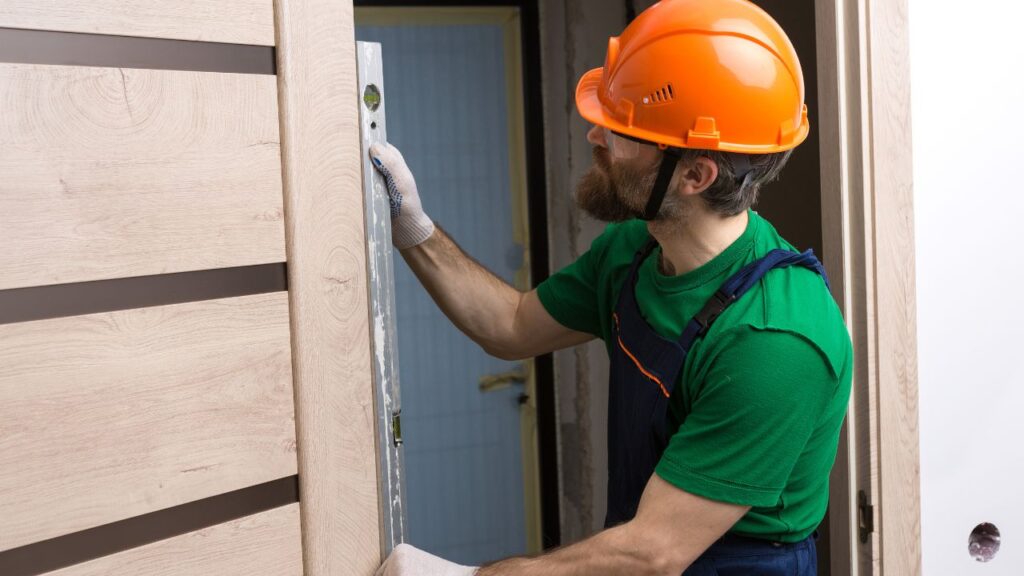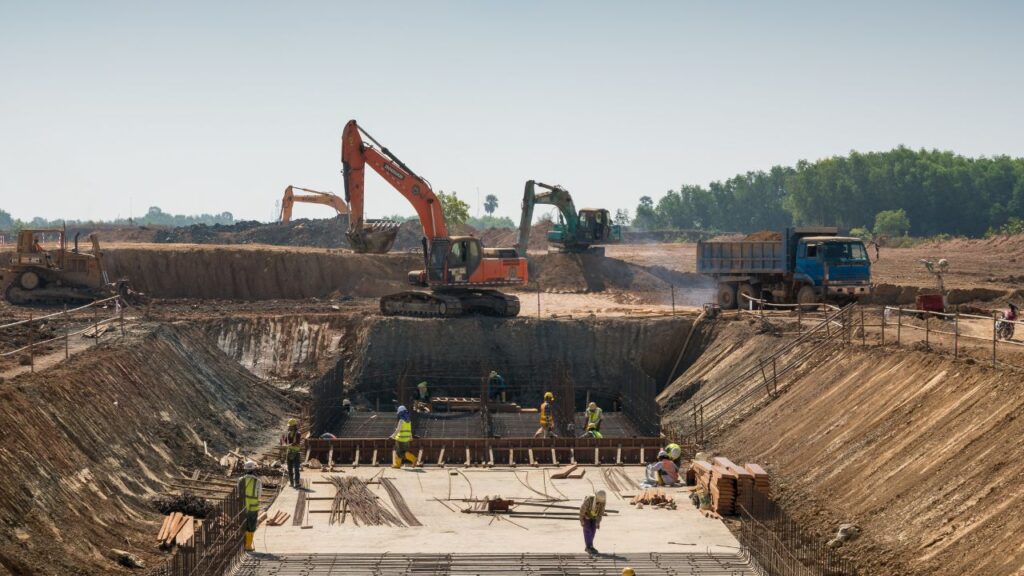A property fence is an essential feature that provides privacy, security, and enhanced curb appeal. In Florida, where property values and boundaries are of high importance, understanding fence installation costs is crucial for homeowners and contractors. This guide covers all aspects of fence installation, including material options, height considerations, additional features, and associated costs. Estimate Florida Consulting is here to provide accurate estimates for your property fencing projects, ensuring a smooth installation process and budget management.
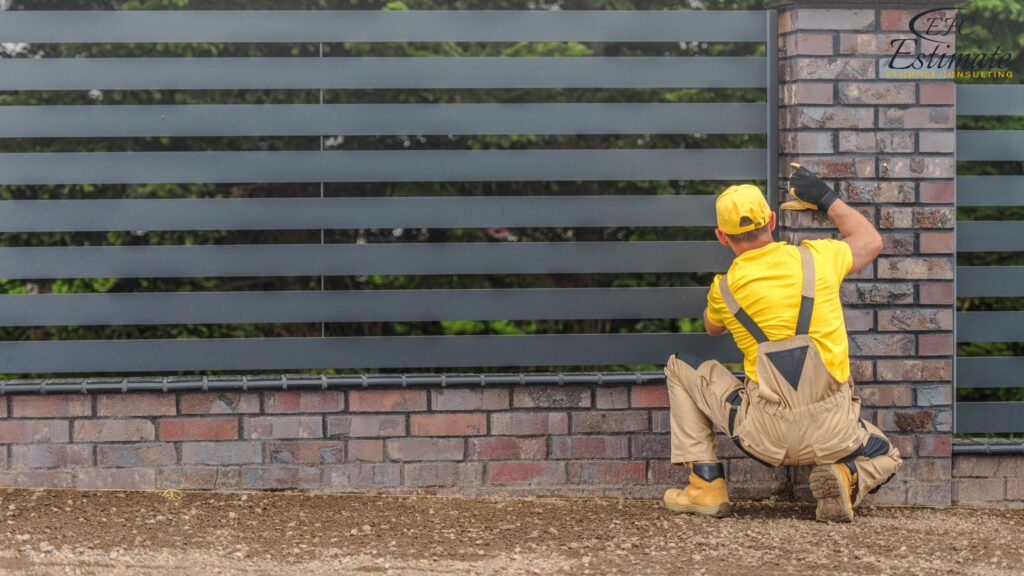
Property Fence Cost per Linear Foot
The cost of a property fence is often calculated on a per-linear-foot basis. This metric helps estimate expenses based on the length of the fence.
Fence Material | Average Cost per Linear Foot |
Wood | $15 – $30 |
Vinyl | $20 – $40 |
Chain-Link | $10 – $20 |
Wrought Iron | $25 – $50 |
Aluminum | $25 – $45 |
Types of Fencing Materials and Their Costs
The type of fencing material is a primary factor in determining installation costs. Below are some popular fencing materials, along with their average costs.
Wood Fencing
Wood fences are popular for their natural appearance and versatility. They can be painted or stained to match the property’s aesthetic.
Material | Average Cost per Linear Foot | Maintenance Requirement |
Cedar | $15 – $30 | Moderate |
Pine | $10 – $25 | High |
Redwood | $25 – $50 | Low |
Wood fences generally range between $10 and $50 per linear foot, with the price depending on the type of wood. Cedar and redwood are more expensive options due to their natural durability and resistance to insects.
Vinyl Fencing
Vinyl fences are known for their durability and low maintenance, making them an appealing option for homeowners seeking a long-lasting solution.
Material | Average Cost per Linear Foot | Maintenance Requirement |
Standard Vinyl | $20 – $40 | Low |
High-Grade Vinyl | $30 – $60 | Very Low |
Vinyl fences typically range from $20 to $60 per linear foot and come in various colors and styles. Although vinyl has a higher upfront cost, its low maintenance requirements make it a cost-effective choice over time.
Chain-Link Fencing
Chain-link fences are affordable and commonly used for securing properties without obstructing views.
Material | Average Cost per Linear Foot | Maintenance Requirement |
Standard Chain-Link | $8 – $20 | Low |
Coated Chain-Link | $12 – $30 | Very Low |
Standard chain-link fencing costs range from $8 to $20 per linear foot, while coated options can go up to $30 per foot. Chain-link is particularly popular for commercial properties and agricultural land.
Aluminum Fencing
Aluminum fencing provides a decorative appearance and is resistant to rust, making it a durable choice.
Material | Average Cost per Linear Foot | Maintenance Requirement |
Standard Aluminum | $20 – $40 | Low |
Decorative Aluminum | $30 – $70 | Very Low |
Aluminum fences generally cost between $20 and $70 per linear foot, with decorative options on the higher end. While aluminum fences mimic the look of wrought iron, they are lighter and more affordable.
Get Acquainted with Estimation
ADVICE FOR NEW CONTRACTORS: 5 Tips for Contractors Just Starting Out
Top 10 Tips to Running a Successful Construction Business
Wrought Iron Fencing
Wrought iron fences are known for their durability and classic, elegant appearance. However, they are among the most expensive options.
Material | Average Cost per Linear Foot | Maintenance Requirement |
Basic Wrought Iron | $30 – $50 | Moderate |
Custom Wrought Iron | $50 – $100 | Moderate |
Wrought iron fencing costs range from $30 to $100 per linear foot, depending on customization and complexity. Regular maintenance is required to prevent rust and preserve its appearance.
Types of Property Fences and Costs
Wood Fences
Wood fences are a popular choice due to their natural appearance and versatility. They can be stained or painted to match the property’s aesthetic, offering a range of styles from classic picket to privacy fencing. Wood fences are generally more affordable, with installation costs ranging from $15 to $30 per linear foot, depending on the wood type (e.g., pine, cedar, redwood) and style. While wood fences require periodic maintenance, such as staining or sealing, they provide a warm, rustic look that many homeowners appreciate.
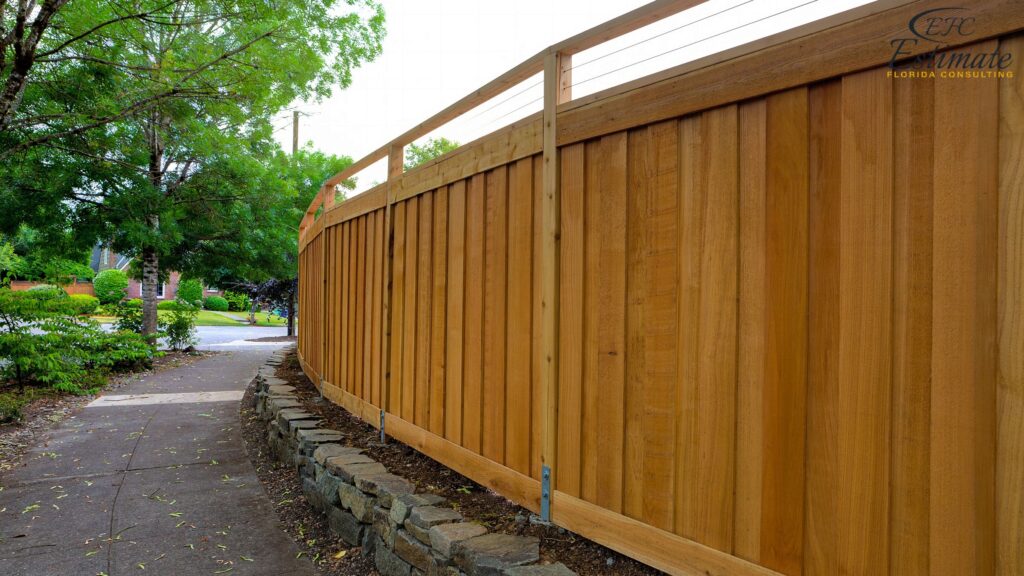
Vinyl Fences
Vinyl fences are known for their durability and low maintenance, making them ideal for Florida’s humid climate as they are resistant to weather, pests, and rot. Vinyl comes in various colors and styles, allowing homeowners to achieve the desired look without the upkeep of wood. The installation cost for vinyl fencing typically ranges from $20 to $40 per linear foot. Though vinyl fences are initially more expensive, they offer a long-lasting, weather-resistant option that requires minimal upkeep.
Chain-Link Fences
Chain-link fences are a cost-effective and practical choice, often used for security, boundary marking, or pet containment. They are easy to install, highly durable, and require little maintenance. Chain-link fencing typically costs between $10 and $20 per linear foot, making it one of the most budget-friendly options. While chain-link fences lack the aesthetic appeal of other materials, they are highly functional and commonly used in residential, commercial, and industrial settings.
Wrought Iron Fences
Wrought iron fences are valued for their strength, durability, and decorative appeal, providing a sophisticated look that enhances property aesthetics. These fences are highly customizable, with options for intricate designs, but they are more expensive, with prices ranging from $25 to $50 per linear foot. Wrought iron fences require periodic maintenance to prevent rust, especially in humid climates, but their timeless elegance makes them a favored choice for upscale properties and historic homes.
Aluminum Fences
Aluminum fences offer the elegant appearance of wrought iron without the risk of rusting, making them ideal for humid or coastal environments. They are lightweight, durable, and require minimal maintenance, available in various styles to suit modern or traditional aesthetics. Installation costs for aluminum fencing typically range from $25 to $45 per linear foot. While slightly more expensive than some options, aluminum fences are a worthwhile investment for those seeking a low-maintenance, stylish, and long-lasting fencing solution.
Fence Installation Costs by Fence Height
The height of a fence affects the amount of material and labor required, influencing the total installation cost.
4-Foot Fence
A 4-foot fence is commonly used for marking property boundaries or containing small pets without obstructing the view. This height is popular for front yards or areas where visibility is preferred over privacy. The average installation cost for a 4-foot fence ranges from $10 to $25 per linear foot, depending on the material, such as chain-link, wood, or vinyl. This lower height requires fewer materials and less labor, making it a cost-effective option for basic property delineation.
6-Foot Fence
A 6-foot fence provides enhanced privacy and security, making it a popular choice for residential backyards and areas where homeowners seek a more secluded outdoor space. This height effectively blocks the view from neighboring properties and helps contain larger pets. The cost for a 6-foot fence typically ranges from $15 to $35 per linear foot, with material choice impacting the overall expense. Wood and vinyl are common choices for 6-foot fences, offering both privacy and durability.
8-Foot Fence
An 8-foot fence offers maximum privacy and security, making it ideal for commercial properties, high-security areas, or residential spaces where privacy is a primary concern. This height is often used to enclose larger properties, protect against noise, or add an extra layer of security. The cost for an 8-foot fence generally ranges from $20 to $50 per linear foot, depending on the material. Due to the increased height, 8-foot fences require more materials and labor, resulting in higher installation costs. Wrought iron, aluminum, and reinforced wood are popular choices for this height in commercial and residential applications.
Cost of Gates for Property Fences
Adding a gate to your fence increases accessibility but also adds to the overall cost. Gate prices vary based on size, material, and design complexity.
Gate Type | Average Cost Range |
Basic Wood Gate | $100 – $300 |
Decorative Vinyl Gate | $300 – $600 |
Metal Gate | $500 – $1,200 |
Automatic Gate | $1,500 – $4,000 |
Win More Projects With Us
Cost Breakdown by Major Components
A detailed cost breakdown allows for a better understanding of the total expense involved in fence installation.
Labor Costs
Labor costs represent a substantial portion of the fence installation budget, as skilled labor is essential for ensuring proper alignment, stability, and finish. Labor rates typically range from $30 to $60 per hour, depending on the project’s complexity, location, and the contractor’s experience. More intricate installations, such as those requiring custom designs, sloping terrain adjustments, or additional support, may increase labor time and cost. Investing in experienced labor is beneficial for achieving a durable, well-constructed fence that meets quality standards.
Material Costs
The choice of fencing material significantly influences the overall cost. Materials like wood and chain-link are generally more affordable, while vinyl, aluminum, and wrought iron are higher-priced due to their durability and low-maintenance qualities. While vinyl and aluminum have a higher upfront cost, they require less maintenance over time, potentially offering savings on upkeep and repairs. Selecting the right material involves balancing initial costs with factors such as durability, maintenance needs, and desired aesthetics.
Permits and Inspections
Depending on local regulations, permits and inspections may be required, particularly for fences exceeding a certain height or those placed near property lines. The average cost for permits and inspections ranges from $50 to $200, though this can vary by jurisdiction. Confirming these requirements with local government offices ensures compliance with zoning laws and building codes, helping avoid fines or mandated modifications.
Removal of Old Fence
If an existing fence needs to be removed before installing a new one, this will incur additional expenses. Removal costs generally range from $3 to $5 per linear foot, depending on the materials and extent of work required. Removing concrete footings or heavily embedded posts may require extra labor. Proper disposal of old fencing materials may also add to the cost, as some contractors charge for waste disposal based on the material type and disposal regulations in the area.
Property Fence Installation Cost by Location
Labor Rates by Region
Labor rates can vary significantly based on the location of the installation. In urban areas where the cost of living and demand for skilled labor are higher, fence installation labor rates may range from $50 to $70 per hour or more. In contrast, rural areas generally have lower labor rates, ranging from $30 to $50 per hour. However, finding skilled contractors in rural areas may sometimes be challenging, potentially impacting availability and scheduling.
Material Availability and Transportation Costs
In urban locations, materials are often readily available, and suppliers may be located nearby, reducing transportation fees. However, in rural areas, materials might need to be transported over longer distances, adding to the overall cost. For rural projects, transportation fees can vary widely depending on the material type and distance from suppliers, sometimes adding $1 to $3 per linear foot for delivery. Rural projects involving premium materials, such as wrought iron or specialty vinyl, may see a noticeable increase in costs due to transportation.
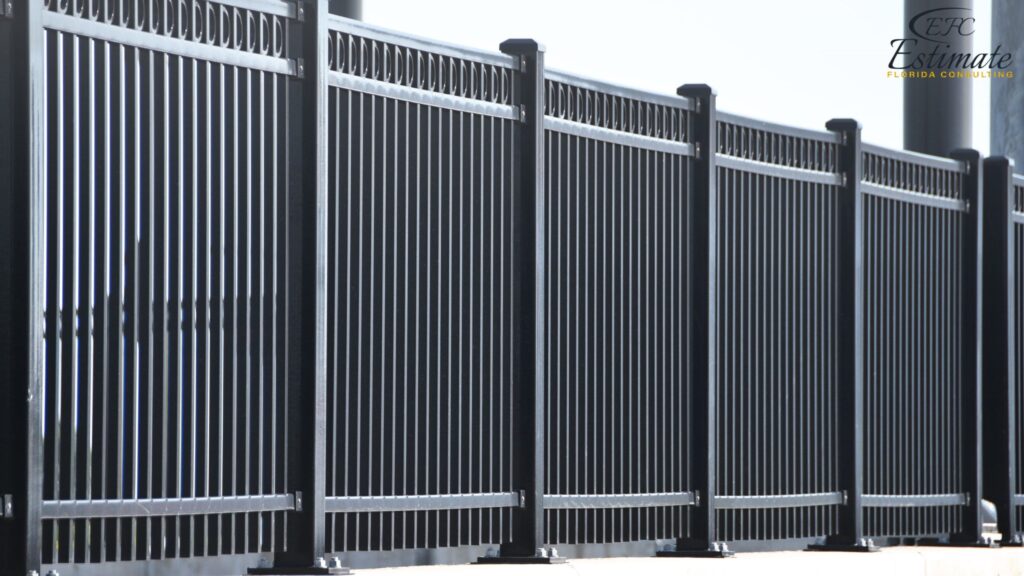
Local Regulations and Permits
Permitting requirements can vary by location, with some urban areas having stricter zoning laws and higher permit fees. Urban areas may also require more thorough inspections or special permits for certain materials or fence heights. These permits can add between $50 and $200 to the total project cost. In rural areas, permit requirements are often less stringent, though specific regulations may still apply for property boundaries, particularly near agricultural or protected land. Checking local regulations before beginning the project ensures compliance and helps avoid delays or fines.
Access and Site Preparation
The location and accessibility of the property can influence installation costs as well. Properties in densely populated areas may require additional labor to navigate confined spaces, complex layouts, or limited access, increasing labor costs. In rural areas, site preparation costs may increase if the terrain is uneven, overgrown, or difficult to access. Additional site preparation, such as land clearing or grading, can add $500 to $2,000 to the total cost, depending on the extent of work needed.
Property Fence Installation Cost for Different Property Types
Residential Fences
Residential fences are primarily installed to enhance privacy, security, and curb appeal. Homeowners can choose from various materials, including wood, vinyl, chain-link, and aluminum, depending on their preferences and budget. The average cost for residential fence installation ranges from $1,500 to $5,000, influenced by factors like property size, material choice, and fence height. For example, a 6-foot vinyl privacy fence will be more expensive than a 4-foot chain-link boundary fence. Residential fences are typically designed to balance aesthetics with function, providing an attractive yet practical solution for homeowners.
Commercial Fences
Commercial properties often require fences that are durable and secure to protect assets and restrict access. Common materials for commercial fences include steel, aluminum, and high-gauge chain-link, which offer enhanced security and longevity. The cost for commercial fence installations generally ranges from $5,000 to $15,000, with higher costs associated with security enhancements such as barbed wire, anti-climb panels, or electronic gate access. Commercial fences are usually taller and more robust than residential options, designed to withstand heavy use and provide a high level of security.
Agricultural Fences
Agricultural fences are essential for farms and rural properties, primarily used to contain livestock and delineate property boundaries. Common materials include wood, wire, and electric fencing, which are cost-effective for covering large areas. The cost for agricultural fences typically ranges from $2 to $6 per linear foot, depending on the material and fence height. These fences are designed for function rather than aesthetics, with wire and wood options providing effective containment for animals while remaining budget-friendly. Agricultural fencing may also include additional components, like gates or electric wiring, which can increase costs slightly but are necessary for functionality on large properties.
Additional Fence Installation Costs
Several additional costs may arise during fence installation:
Permit Fees
In some areas, a permit is required to install a fence, especially if it exceeds a certain height or is located near property boundaries. Permit fees vary by jurisdiction and can range from $50 to $200. Checking with local authorities before beginning the project ensures compliance with building codes and avoids potential fines or delays.
Fence Removal
If there is an existing fence that needs to be removed before installing a new one, this will incur additional costs. Removing an old fence, including hauling away the debris, generally adds $3 to $5 per linear foot. The condition and material of the old fence may impact the removal cost, with heavily embedded posts or concrete footings requiring more labor.
Land Grading
Uneven or sloped terrain can complicate fence installation, as the ground may need to be leveled or graded to ensure stability and a uniform appearance. Land grading costs typically range from $500 to $2,000, depending on the extent of the work required and the terrain’s condition. Grading ensures a smoother installation process and improves the overall look and longevity of the fence.
Fence Staining or Painting
For wood fences, staining or painting adds both aesthetic appeal and protection from the elements, helping to prevent rot, warping, and fading. The cost of staining or painting a fence generally ranges from $1 to $3 per square foot. Regular maintenance, such as re-staining or repainting every few years, can help extend the lifespan of the fence, especially in climates with high humidity or extreme weather conditions.
Download Template For Property Fence Project Breakdown
- Materials list updated to the zip code
- Fast delivery
- Data base of general contractors and sub-contractors
- Local estimators

Fence Installation Cost by Length
100 Linear Feet
For a smaller property or garden area, a 100-foot fence provides a compact solution for defining boundaries or enclosing specific sections. The cost for a 100-foot fence installation generally ranges from $1,000 to $5,000, depending on the material and height chosen. Basic options like chain-link and wood are often more affordable, while premium materials like vinyl or wrought iron will push costs toward the higher end. This length is ideal for residential applications where limited fencing is needed for privacy, security, or aesthetic enhancement.
200 Linear Feet
A 200-foot fence is a suitable choice for medium-sized properties, providing enough coverage for backyard privacy, pet containment, or defining larger boundaries. Installation costs for a 200-foot fence can range from $2,000 to $10,000, depending on the material, height, and design complexity. Wood and vinyl are popular options in this range, with vinyl offering durability and low maintenance. Property owners often choose this length for residential purposes or to enclose larger garden areas.
500 Linear Feet
For large properties, agricultural applications, or extended boundaries, a 500-foot fence provides ample enclosure. Installation costs for a 500-foot fence typically range from $5,000 to $25,000, depending on the material and specific needs. Chain-link is a common choice for this length due to its affordability, though wood and wire options are also popular in agricultural settings. For residential properties needing extensive privacy or security, premium materials like vinyl or aluminum may be used, though costs will be higher. This length is especially practical for farms, ranches, or estates requiring large-scale fencing solutions.
Factors Influencing Fence Installation Cost
Several factors impact the overall cost of fence installation, including:
- Material Choice: The type of material chosen, such as wood, vinyl, or wrought iron, is one of the most significant cost factors.
- Height and Length: Taller fences and longer installations require more materials, increasing costs.
- Land Topography: Properties with sloped or uneven terrain may require additional labor and materials, raising the overall cost.
- Location: Regional differences in labor and material costs can influence prices, with urban areas typically being more expensive.
- Permits and Regulations: Local regulations may require permits for certain fence heights or materials, adding to the cost.
Conclusion
Installing a property fence in Florida offers numerous benefits, including privacy, security, and enhanced curb appeal. Costs for fence installation vary widely based on factors like material, fence height, and location. Homeowners and contractors can expect to spend between $10 and $100 per linear foot, depending on the materials chosen—such as wood, vinyl, chain-link, or wrought iron. Additional costs like permits, site preparation, and maintenance also impact the total expense. With proper planning and accurate cost estimates, installing a fence becomes a valuable investment in property safety, aesthetics, and value.
Frequently Asked Question
The average cost for property fence installation in Florida ranges from $10 to $100 per linear foot, depending on the materials, height, and design complexity of the fence.
Fence installation cost is typically calculated per linear foot, with costs influenced by the length, material, and height of the fence.
- Common materials and their average costs per linear foot include:
- Wood: $15 - $30
- Vinyl: $20 - $40
- Chain-link: $10 - $20
- Aluminum: $25 - $45
- Wrought Iron: $25 - $50
Vinyl and aluminum fences require minimal maintenance, as they are resistant to rust, rot, and pests, making them ideal for Florida’s humid climate.
Yes, taller fences require more materials and labor, increasing the cost. For example, a 4-foot fence may cost between $10 and $25 per linear foot, while an 8-foot fence could cost $20 to $50 per linear foot.
- Gate installation costs vary by material and style:
- Basic wood gate: $100 - $300
- Decorative vinyl gate: $300 - $600
- Metal gate: $500 - $1,200
- Automatic gate: $1,500 - $4,000
- Additional costs may include:
- Permit fees: $50 - $200
- Old fence removal: $3 - $5 per linear foot
- Land grading: $500 - $2,000
- Staining or painting for wood: $1 - $3 per square foot
Permit requirements vary by location. Fences over a certain height or near property boundaries may require a permit, typically costing between $50 and $200.
Labor rates typically range from $30 to $60 per hour, depending on the project’s complexity, location, and the contractor’s experience.
Yes, urban areas generally have higher labor rates and material costs than rural areas. Transportation fees may also increase costs for rural properties due to the distance from suppliers.
Comprehensive Trade-Specific Estimates
At Estimate Florida Consulting, we offer detailed cost estimates across all major trades, ensuring no part of your project is overlooked. From the foundation to the finishing touches, our trade-specific estimates provide you with a complete and accurate breakdown of costs for any type of construction project.

Testimonials
What Our Clients Say
We take pride in delivering accurate, timely, and reliable estimates that help contractors and builders win more projects. Our clients consistently praise our attention to detail, fast turnaround times, and the positive impact our estimates have on their businesses.
Estimate Florida Consulting has helped us win more bids with their fast and accurate estimates. We trust them for every project!

Steps to Follow
Our Simple Process to Get Your Estimate
01
Upload Plans
Submit your project plans, blueprints, or relevant documents through our online form or via email.
02
Receive Quotation
We’ll review your project details and send you a quote based on your scope and requirements.
03
Confirmation
Confirm the details and finalize any adjustments to ensure the estimate meets your project needs.
04
Get Estimate
Receive your detailed, trade-specific estimate within 1-2 business days, ready for your project execution.





